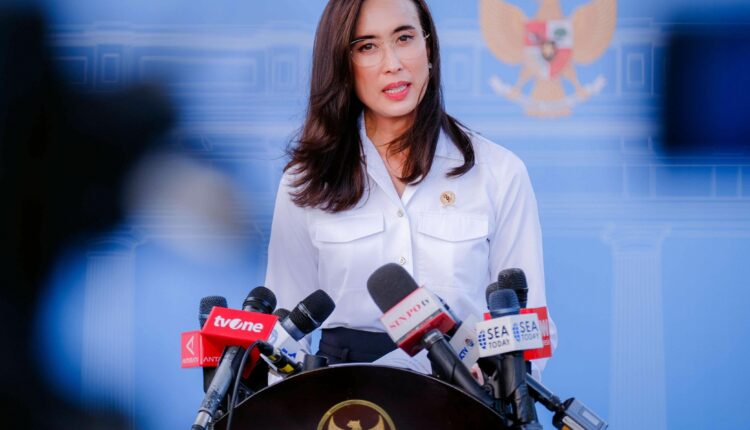
The Indonesian tourism minister, Widyanti Putri Wardhana, emphasized how the tourism sector can act as a buffer against the negative effects of the reciprocal tariffs imposed by the United States.
Wardhana clarified that because tourism is classified as a service industry, it is not subject to these tariffs, allowing it to continue to generate foreign exchange for Indonesia.
In a statement released on April 6, she affirmed:
“Indonesia is capable of optimizing the significant potential of the tourism sector as a primary source of foreign exchange that remains free from trade barriers.”
This declaration responds to worries that restrictions against Indonesian exports to the US could weaken its currency against the dollar.
Wardhana highlighted that the tourism sector should be seen as a balancing export service due to Indonesia’s vast intrinsic tourism potential. However, she acknowledged that the inflow of 13.9 million foreign tourists is still concentrated in popular areas such as Bali, Jakarta, Bandung, and Surabaya, indicating a need for greater promotion of other destinations.
She urged the Indonesian tourism sector to harness opportunities presented by changing global dynamics, positioning the country as a premier tourist destination. Wardhana remarked:
“The readiness of destinations, tourism products, and promoted services must be pursued in a comprehensive manner, with the government’s backing.”
Additionally, in her vision, Indonesia’s tourism potential should extend from specific famous destinations to develop at the village level. The Ministry of Tourism remains committed to fostering tourism villages and promoting tourism-based economic activities across the nation.
As articulated by Wardhana:
“This initiative aims to evenly distribute economic benefits and lessen dependence on the manufacturing export sector affected by tariffs. We also encourage tourism businesses to create high-quality tourism experiences.”
